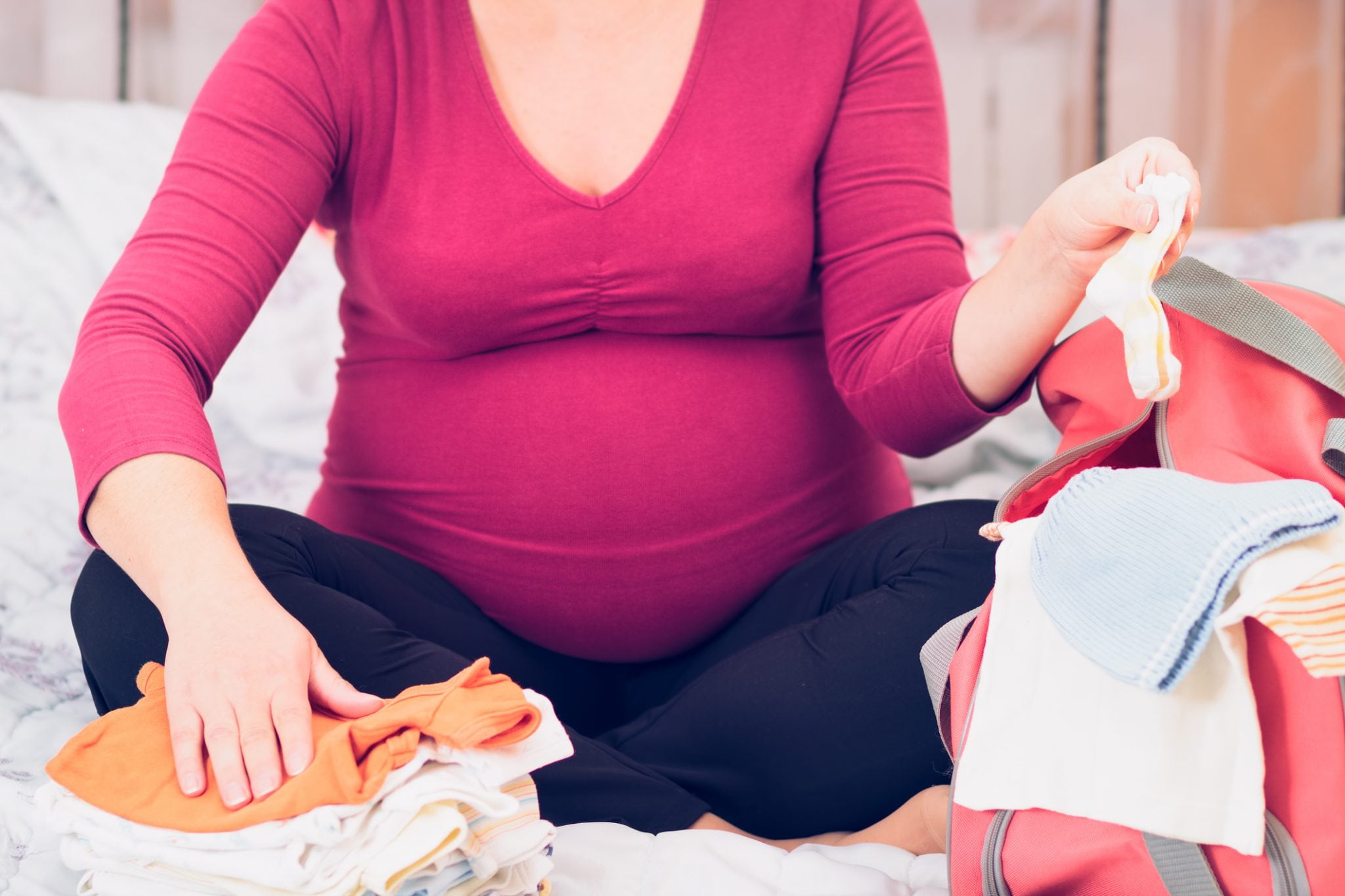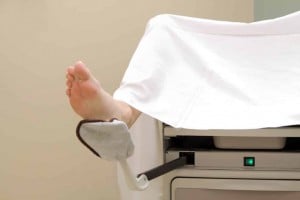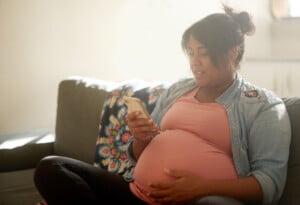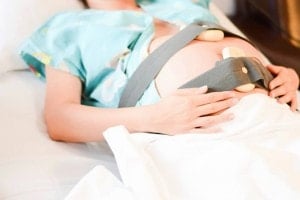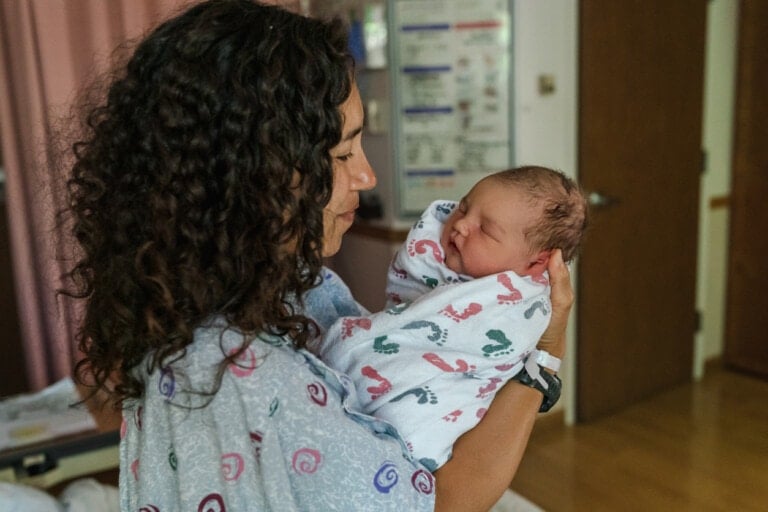Not sure what to pack in your hospital bag? I get it. It can be confusing what you should bring with you. As a certified doula, I’ve helped hundreds of parents over the past decade prepare for birth. That’s why I’ve created my hospital bag checklist, which includes all the must-haves (and smart extras!) for labor, delivery, and postpartum — for mom, baby, and partner. Whether you’re planning a medicated or unmedicated birth, this list has you covered!
NOTE: I would recommend having your hospital bags packed and in your car by 37 weeks.
I recommend having your hospital bags ready by 37 weeks because you want to be prepared. You never know when your little one will decide to arrive. Also, it’s nice to be ready just in case your OB/GYN or midwife keeps you after a prenatal visit or sends you to the hospital because of an emergency. In my opinion, it’s always better to be safe than sorry! Your partner can always pick up your packed bags at the house and bring them to you in case you do need to deliver earlier than planned.
Below, I’ve organized different lists for mom, dad/partner, and baby! Here’s my ultimate hospital bag checklist — everything you’ll need at the hospital during your labor, birth, and immediately postpartum.
Hospital Bag Checklist for Mom (Labor & Postpartum)
I recommend that moms have two bags: one that has everything she’ll need during labor and another for the recovery/postpartum room. Here are my must-haves to pack, as well as some non-essentials that can be nice to have and pack on your hospital bag checklist:
Labor Hospital Bag: Must-Haves
- Birth plan, form of ID, and insurance: You should bring several copies of your birth plan (if you have one), a form of ID, and your insurance information.
- Eyeglasses: If you wear contacts, you should bring your glasses along. Some doctors and anesthesiologists ask you to remove your contacts before surgery if you need a C-section.
- What you’ll wear during labor: It will probably get a bit messy, so don’t bring anything too nice to wear in the hospital. If you aren’t sure of your options, here’s more information about what to wear at a hospital birth if you’d like to wear something other than a hospital gown.
- Massage oil or lotion: If you want your partner or doula to massage you during your labor, I recommend bringing massage oil or lotion. (Though, if you’ve hired a doula, she’ll probably bring this in her doula bag.)
- Lip balm: With all the deep breathing you will do in labor, your lips can dry out quickly. Having some chapstick or lip balm will help!
- Snacks and drinks: Before bringing these, ensure your doctor/hospital will allow you to pack snacks and drinks like labor-aide. Most of the time, they’ll only let you have ice chips at the hospital in labor, but they may have sugar-free popsicles for you. (Learn more: Foods to eat (and not eat) in early labor) But even if they don’t allow you to bring or eat food, you can still bring peppermints, gum, lollipops, and honey sticks or packets to help give you energy!
- Things to help you relax and pass the time, depending on whether you’re having an:
- Epidural: If you’re going to have an epidural, bring books, magazines, a card game, or your tablet or computer. Most hospitals have TVs in each L&D room so you can watch a show or movie to help pass the time. I also recommend trying to take a nap. It’s great to catch up on as much rest as possible before pushing. You’ll need all of your energy during that time!
- Unmedicated birth: If you want an unmedicated birth, create a birth playlist and bring music. Pack things like a focal point (for example, your baby’s ultrasound picture), massage lotions, a heating pad, rice socks to heat up (so you can put them on your lower back), a stroller fan that you can attach to your hospital bed to keep you cool, a cooling towel, essential oils for labor and delivery, etc.
- Headbands and/or ponytail holders: If you have long hair, you may want to tie it up since it can get in the way during labor. I recommend getting headbands, claw clips, or ponytail holders that don’t leave a kink in your hair. That way, if you want to take pictures with your hair down after you give birth, you won’t have a crease in your hair!
- Music: Take your Bluetooth speaker or use your phone. Some hospitals provide Bluetooth speakers, so I would ask what they’ll have available in your room.
- A camera, a charged battery, a charger, and a big memory card: You never want to forget the day you first welcomed your baby into the world. Many parents take pictures with their phones, but if you have a nicer camera to capture this special time, bring it!
- Your cell phone and charger with a long cord: You don’t know where the outlet will be in the room, so bring an extra-long charging cord to keep your phone close even while charging.
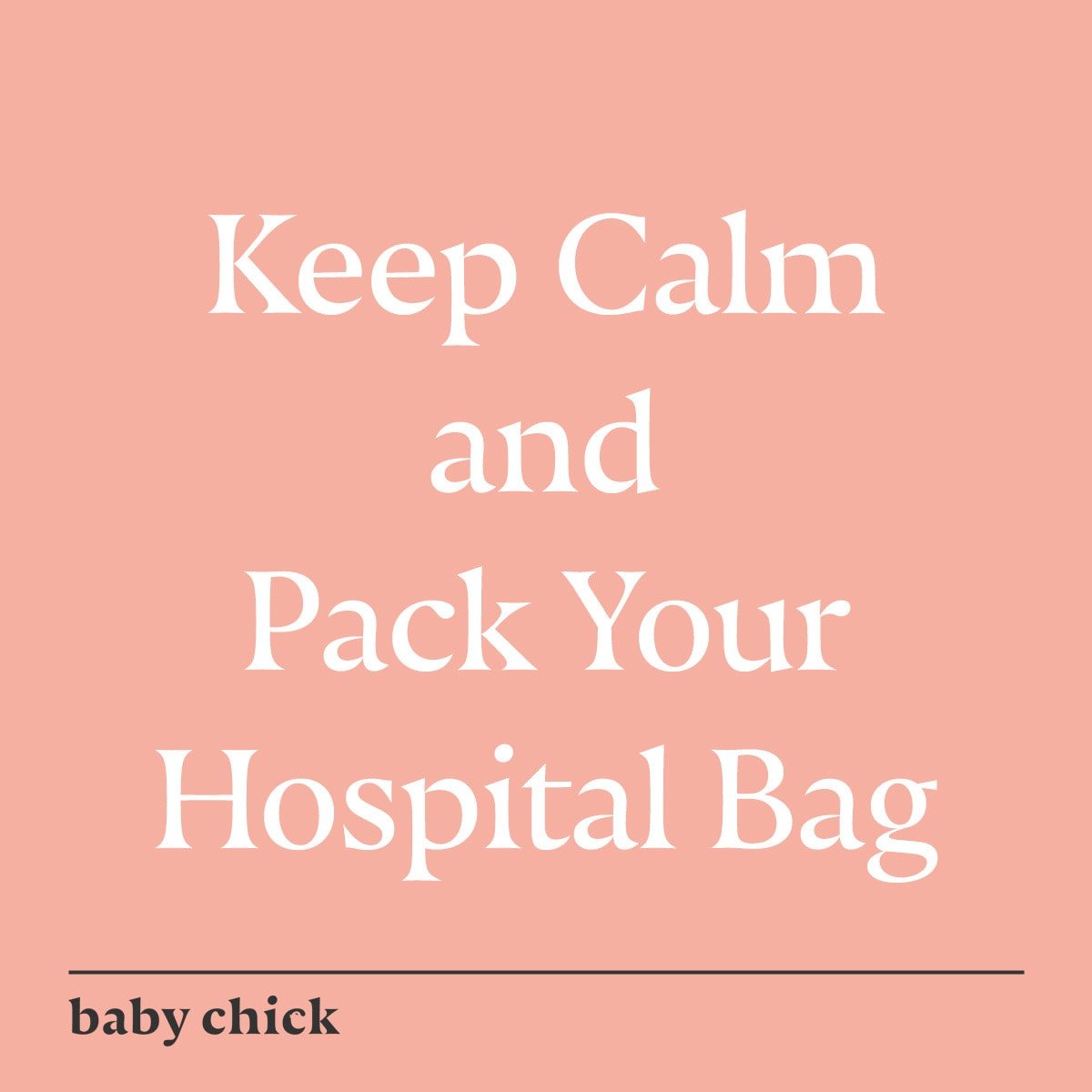
Labor Hospital Bag: Optional Items
- Backless slip-on slippers: Your feet can get cold during labor, so it’s great to have slippers you can easily slip on and off. The hospital typically has nonskid socks (super sexy! 😜) that you can use if you prefer those instead.
- Pillows: The hospital might not have enough pillows to make you comfortable. Usually, each room has about two. And often, hospital pillows are very thin and uncomfortable. If you bring your own pillows (I would), ensure your pillowcase isn’t white. Otherwise, they could toss your pillowcase and pillow along with the rest of theirs, and your pillow will go missing. I definitely recommend adding it to your hospital bag checklist to help you stay comfortable.
- A baby book: After your baby is born, the nurse will get your baby’s footprints. If you bring your baby book, she can also get those sweet footprints and/or handprints for it!
- A birth ball or peanut ball: A birth ball or peanut ball can really help you during labor. A peanut ball is particularly great for women preparing to have an epidural, so I highly recommend it! Just bring an air pump so your birth partner can inflate it if you didn’t come with it already inflated.
- NOTE: Some hospitals have birthing balls and peanut balls for you to use. Ask during your maternity hospital tour if they’re available and if there are enough for each room. You don’t want to leave yours at home on the big day, but not have any available when you’re at the hospital.
Postpartum Hospital Bag: Must-Haves for Recovery
- A going-home outfit: You’ll need loose, comfortable clothes to wear in the hospital and on the journey home. After the birth of your baby, you’ll still look about six months pregnant since your uterus needs time to heal and return to its pre-pregnancy size. So, I recommend bringing some soft maternity clothes for your trip back home.
- Nursing bras and/or nursing nightgowns: If you had a healthy labor and birth and your baby is doing well, you’ll probably only stay at the hospital for two or three days maximum. I suggest bringing two or three nursing gowns or bras to make breastfeeding easier and remain comfortable during your stay. If you decide to wear your nursing bras, bring front-opening shirts so it’s easier to breastfeed.
- Nursing pads: Bring a couple of packs (disposable or washable). Whether you plan to nurse or not, you’ll appreciate the support and leak protection.
- Nipple cream: You’ll want nipple cream to protect your nipples from chapping and cracking.
- Your toiletries: Having smaller bottles or buying travel versions helps save space in your recovery bathroom. Bring the usual toiletries you need: a hairbrush, a toothbrush, toothpaste, shampoo, conditioner, body soap, a razor, deodorant, face wash, makeup (if you’d like), makeup remover, lotion, hair ties, a contact lens case and solution, etc.
- Postpartum underwear or disposable underwear: Don’t bring your nice, cute undies with you! You need big, cotton, breathable underwear. I recommend purchasing postpartum underwear. Some people even get Depends Silhouettes, so they don’t have to apply a pad and can easily toss them after using them. The hospital will have disposable mesh undies with a large pad, which some women find handy and others find gross, which is why they bring their own brands they prefer. It’s all your preference!
- A bathrobe: It’s nice to bundle up in a bathrobe and feel covered and warm when getting out of bed. This is also good to have if there will be guests in your hospital room.
- A hair dryer: You’ll want one in your postpartum room after you’re able to take a shower.
- Snacks and drinks: If your hospital doesn’t have the best food, and you don’t have someone to bring you any, pack some beverages and snacks to keep you nourished. I have had several clients pack a cooler with their favorites!
Postpartum Hospital Bag: Optional Recovery Items
- A nursing pillow: You can bring your Boppy pillow, My Breast Friend, or other nursing pillows, depending on your preference.
- A breast pump: If you plan to use a breast pump, I recommend bringing your own. Most hospitals have lactation consultants who visit each room to help you with breastfeeding and they can show you how to use your pump correctly.
- Nipple shields: You don’t need to bring these with you. However, if you have latching issues, your nipples start to hurt, or your nipples are inverted or flat, the lactation consultant may recommend a nipple shield. You may also be able to purchase them at the hospital.
- Handouts: If you received any booklets or handouts about starting breastfeeding, you can bring them as a reminder. The lactation consultants aren’t always there to see you, so these can help!
- Bath towels: The hospital does have towels, but they’re usually small and pretty thin. If you prefer to have your own thicker towels, you can bring your own. It’s also nice to have a wraparound towel to wear.
- Heavy flow pads: The hospital also has large pads to use after giving birth, since you’ll be bleeding for several weeks after childbirth. (This includes vaginal and cesarean births!) Bring the pad brand you prefer if you’re picky about what type you want to wear.
- Sleep items: I recommend bringing relaxation items such as:
- Portable sound machine: Hospitals can be loud. There might be foot traffic from the nurses outside, babies crying, people talking, and different machines beeping and making noise. Bringing a sound machine can help drown all of those noises out and help you and your baby get the sleep you need.
- Sleep eye mask: Postpartum rooms usually don’t have blackout curtains. If you want to take a nap while the baby sleeps or sleep a little longer before the sun shines in your room, an eye mask can help!
- Night light: Your postpartum nurse will be checking in on you to check your vitals. Also, your baby will be waking up every couple of hours to feed. Rather than turning on the bright light, which can be overstimulating for everyone in the room, pack a night light.
In addition to the above information, check out these resources:
- Postpartum Must-Haves for a Faster and Easier Recovery After Birth
- Postpartum Essentials for Mom and Baby
Before we dive into what dads/partners should pack and the going-home essentials for baby, be sure to download or print our free hospital bag checklist. It’s the perfect on-the-go guide, so you don’t have to keep scrolling back through this article when it’s go-time!
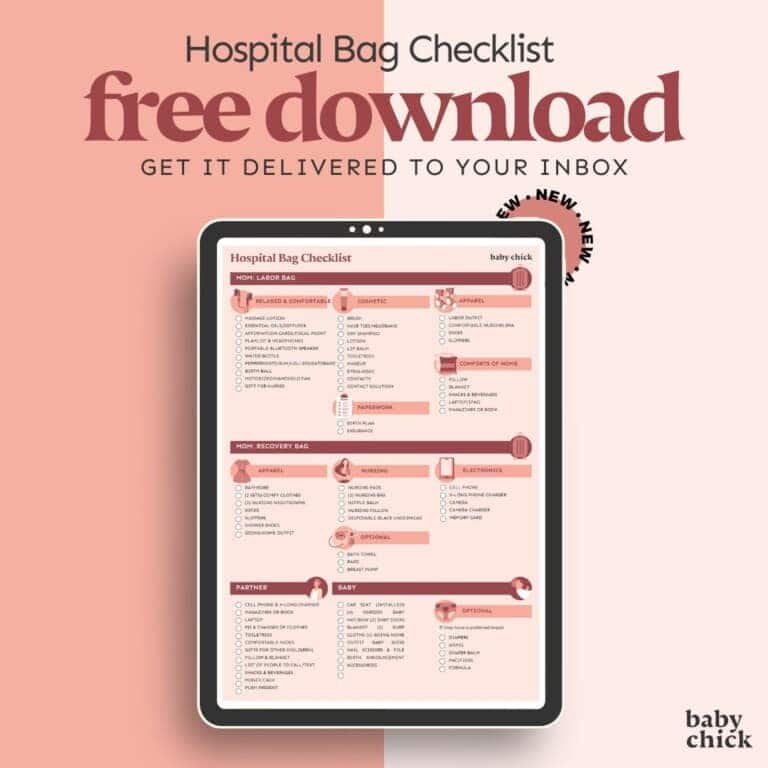
Hospital Bag Checklist for Dad/Partner
Your husband or partner should also pack a hospital bag with items they’ll need to be the best birth partner they can be! Here are the must-have and nonessential items for them to bring:
Partner Hospital Bag: Must-Have Items
- Extra changes of clothes: I’ve had some dads/partners change their clothes even when their partner is still in labor. For example, they may think the room is too cold, so they put on a jacket or long-sleeved shirt. Or they sweat too much because they’re nervous or working hard, so they need a new shirt. Having some extra pairs of clean clothes on hand is good.
- Comfortable shoes: Having comfy shoes is essential! They may be walking up and down the halls with you, running to get you ice chips, or going to find and talk to family.
- A pillow: For the same reason as you, they’ll need something comfortable to sleep on. The pull-out couches aren’t the most comfortable, so it’s nice for them to have a good pillow.
- Your cell phone and an extra-long charger: When you were in early labor, your partner should’ve been keeping track of your contractions on their phone with a contraction timer app. Be sure they have that downloaded as well. There are plenty of free ones!
- Group text or list of people to call: Figure out beforehand all the people your partner needs to notify once you’re in labor. Some people do a group text, and others keep a list of names to get in touch with.
- Snacks and drinks: You don’t want a dehydrated, hungry birth partner looking after you. If they bring snacks and drinks, they can stay with you rather than leave the room to search for food. (Since they may not return quickly enough to help you!) I tell my doula clients to bring a cooler to carry the drinks and snacks they want.
Partner Hospital Bag: Optional Items
- A motorized or hand-held fan: You may get overheated in labor, so it’s great if your partner has a fan to help you cool down. It can be a motorized or hand-held fan and may even have a mister, which can be very nice.
- Money/spare change: If you don’t have time to bring snacks, you’ll want some spare change for the vending machines. You’ll both probably be hungry after labor, and the hospital cafeteria might not be open once the baby is born. If no one can bring you food (though I would see if someone can pick something up for you), having change is helpful for getting snacks from the vending machine.
- Pen and paper: If documenting things in a note on your phone isn’t your preference, bring something to take notes on. This will help if your nurse, doctor, or lactation consultant gives you any recommendations or advice. Also, you just gave birth and are recovering. Put him in charge of documenting important things!
- Gifts for your other children: Make sure to have these ready when their big brother or sister enters the room. A gift “from the baby” is always a good thing.
- A push present: This way, they can give you the push present after the birth of your baby. 😉
In addition to the above information, have your partner read the following:
- Tips for dads during labor and delivery
- The best ways dads can help a new mom
- Ways dads can help with breastfeeding
Hospital Bag Checklist for Baby: What to Pack for Going Home
Don’t forget about your new baby when making your hospital bag checklist! Here’s what you’ll need to have ready for your little bundle of joy, as well as optional items that are nice to have:
Hospital Bag for Baby: Must-Haves
- An approved installed car seat: Hospitals won’t let you leave without a car seat. You also need to make sure you’ve installed the base properly in your car.
- A going-home newborn outfit: When purchasing a going-home outfit for your newborn, consider what the weather might be like. For instance, babies are sensitive to cold weather, so during the winter or if it’s cold outside, bring a hat, snowsuit, or jacket to keep your new baby warm. And don’t forget socks or booties! (NOTE: Remove the snowsuit or jacket before placing baby in a car seat.)
- Warm blankets: The hospital will provide you with a baby blanket or two to swaddle your baby. But if you prefer a particular type of blanket, you can bring your own.
- Birth announcement items: If you have a name badge or personalized blankets with your baby’s name, don’t forget to bring them. This way, you can document and share with the world (or just your family) that your little one has arrived.
Hospital Bag for Baby: Optional Items
- Onesies: The hospital will give you some white Gerber onesies while you’re there. All you really need is a going-home outfit for your baby. But if you prefer that your baby wear something else, bring two or three onesie options.
- Pacifiers: If you decide to give your baby a pacifier, you can bring your own. Otherwise, the hospital will charge you for theirs, which is usually a little higher in price.
- Burp cloths: Burp cloths are great for cleaning up any milk or if your baby spits up. But you can also use the baby blankets they give you.
What Else to Know About Packing Your Hospital Bag
It might feel overwhelming to figure out everything to bring to the hospital for labor, so I hope this bag checklist is helpful for all your packing needs! I also recommend making sure there’s extra room available in your hospital bags. Then, you can bring home everything you get at the hospital. They’re going to give you diapers, wipes, and more. Take as much as you can! They’re charging you for it anyway 😉
Frequently Asked Questions
✅ Download my FREE printable checklist PDF to keep on hand!
Feeling overwhelmed by pregnancy or unsure how to prepare for birth? Our NEW Pregnancy & Birth Prep App walks you through an 8-week challenge with daily bite-sized expert-backed tips, checklists, and real support. Everything you need for a more confident and positive experience! 🙌

